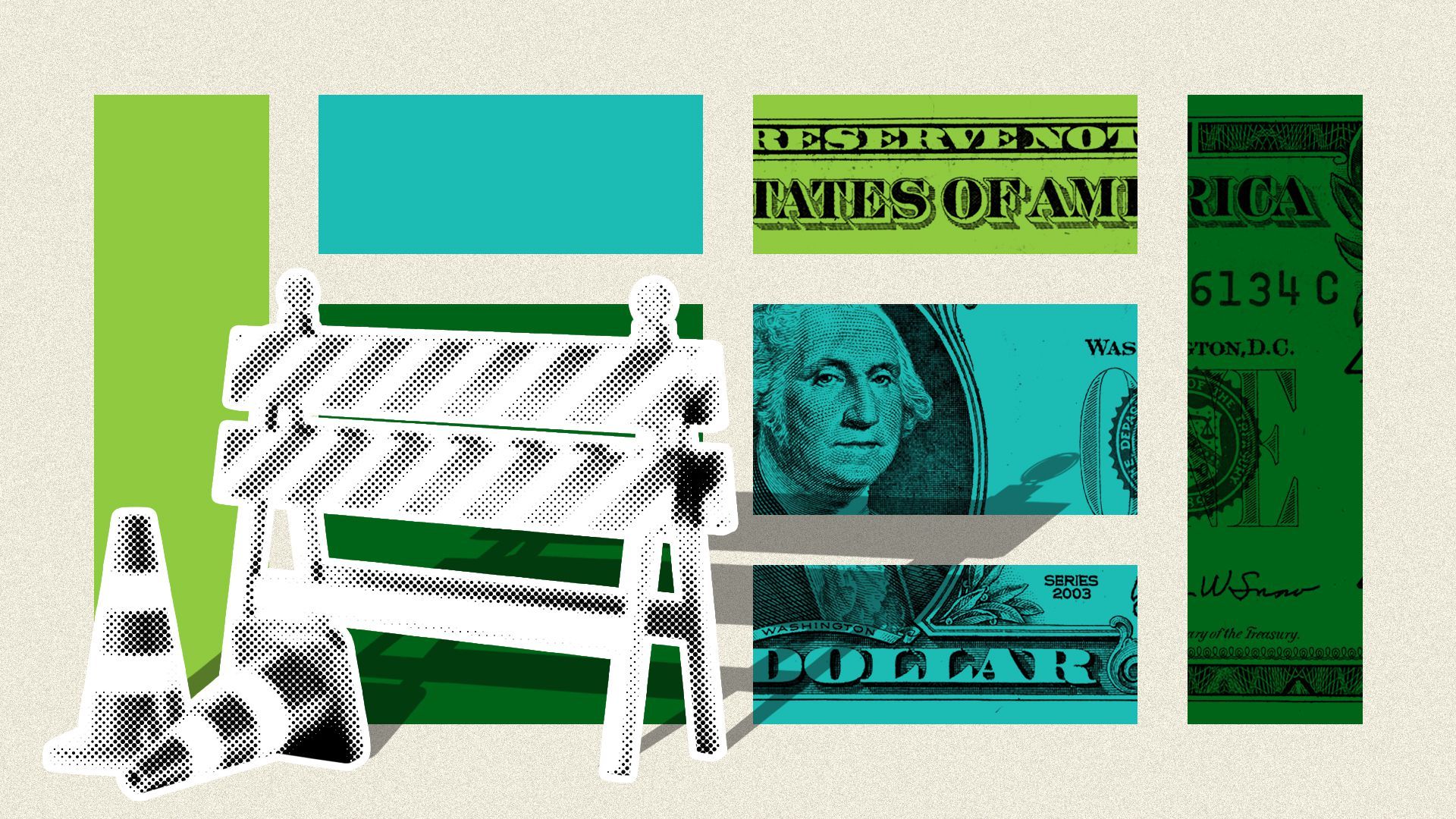Infrastructure investors see new bill as encouragement
Add Axios as your preferred source to
see more of our stories on Google.

Illustration: Megan Robinson/Axios
Infrastructure investors are enthusiastic that Congress finally passed a giant infrastructure bill, but they tell Axios that it won't be a "game changer" for their strategies.
Between the lines: The bill is more of a stamp of approval for what these firms have already been doing.
Stay of play: Global infrastructure fundraising has been robust, with 107 funds raising a cumulative $93.6 billion in 2020 and 53 funds raising $73.3 billion in the first three quarters of 2021, per PitchBook.
- PitchBook analyst Rebecca Springer says LPs are increasing their allocations to infrastructure because of strong returns and as an inflation hedge.
Big picture: The infrastructure bill authorizes about $1.2 trillion to be spent over the next 10 years in areas such as broadband, electric grids, public transit and EV charging.
What they’re saying: “It’s a really exciting bill because it’s so massive and brings a lot of attention on infrastructure, which is sorely needed,” says Alex Symes, director of global real assets research at BlackRock.
- “It may help give us conviction around some of those assets or areas,” says Alex Darden, EQT president and head of U.S. infrastructure.
- For example, school bus electrification “right now is not economic,” he explains. “So the grants that are in the infrastructure bill will hopefully allow us and others to accelerate our electrification strategies,” he adds, pointing to portfolio company First Student as one that could benefit.
Notably: Investors who spoke with Axios highlighted the bill’s provisions for broadband and other digital infrastructure as particularly exciting, both as a direct boon for their portfolio companies that provide internet connectivity and for the trickle-down effects of more Americans having access to high-speed internet.
Yes, but: The lack of overt mandates or support for public-private partnerships is where investors say the bill falls short (though none are surprised).
- “As an American, it’s pretty disheartening because I think we are not taking advantage of all the resources that exist to improve our infrastructure,” says Darden. It's a pretty accepted strategy in other countries but has a negative connotation in the U.S., he adds.
